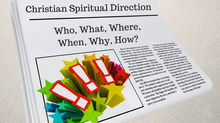At Some Point, You Just Pull Off the Band-Aid: Part 2, How Will I Ever Get Out of This Labyrinth?

After a great deal of introspection and searching for the reasons why one of main characters in John Green’s novel, Looking for Alaska, suddenly dies, the protagonist, Miles “Pudge” Halter, sits down at his computer to write his way out of his personal labyrinth of suffering:
“Before I got here [Culver Creek, the boarding school where the story takes place], I thought for a long time that the way out of the labyrinth was to pretend that it did not exist, to build a small, self-sufficient world in the back corner of the endless maze and to pretend that I was not lost, but home.”
These words reveal an important insight. The various stage theories argue that grievers must pass through a denial stage on their way to recovering from their loss. That is, we must first accept that a loss has occurred before we can effectively deal with our grief. I beg to differ. Grievers more often than not accept that a loss has taken place, but what they may not accept and deny to themselves is that they become lost in their grief and do not grasp its impact on their lives. This type of denial is what keeps them stuck – or as Miles writes, “…to pretend that I was not lost, but home.”
The genesis and continued perpetration of this denial is found in American societal norms, values and expectations about how we are to behave, feel and express those feelings. We are taught from an early age that when bad things happen to buck up and get on with life and “that having sad, painful or negative feelings and showing them are somehow not appropriate” (James and Friedman, 2009).
What people say at a time of loss reinforces this lesson. For example, instead of truly listening to grievers talk about their sadness, they change the subject or offer well-meaning but meaningless statements that are void of any true empathy or emotional understanding. Consider how many times you have been told, “Don’t feel bad, this too shall pass, you’ll find someone else or be grateful that s/he was in your life. You can always have another child, adopt another pet or fall in love with someone else.” These statements serve to isolate grievers and to strengthen their denial of their feelings.
Psychologist Erich Fromm points out in his 1955 book, The Sane Society: “Instead of allowing the awareness of death and suffering to become one of the strongest incentives for life…the individual is forced to repress it. But, as is always the case with repression, by being removed from sight, the repressed elements do not cease to exist” (as quoted in Konigsberg, 2011). Thus, grievers pretend that they are not lost and that everything is fine.
But, everything is not fine. Regardless of the type of loss, denying our feelings and the effect on our physical, emotional and spiritual health directly impacts our quality of life. The first step to finding a way out of our labyrinths is to step out of our “small self-sufficient world in the back corner of the endless maze” and acknowledge that our hearts are broken. There is truth in the cliché, “If you can feel it, you can heal it.”
Yes, it may be scary to take this first step. Yes, it may be painful. As Miles leaves the comfort and security of his family and begins a new life at Culver Creek, he realizes: “At some point, you just pull off the Band-Aid, and it hurts, but then it’s over and you’re relieved” (Green, 2012). I commend you for your courage!
The Grief Recovery Method® offers a roadmap out of the labyrinth. In a safe and confidential environment and with the assistance of an experienced guide, you will learn how to examine the losses in your life and to discover what was left unsaid or undone and what expectations or dreams were left unrealized. Discovering these unexpressed emotional communications and sharing them allows you to bring your pain and sad feelings to the surface and to let them go. By taking these actions, your heart and head will work together to show you the way out of your labyrinth of grief.
Please call me. I can help.
Green J. Looking for Alaska, 2012. Speak, Penquin Group, Inc.: New York.
James, J. W. and Friedman, R. 2009. The Grief Recovery Handbook (20th Anniversary Expanded Edition). Collings Living, New York, NY.
Konigsberg, R.D. 2011. The Truth About Grief: The Myth of Its Five Stages and the New Science of Loss. Simon & Schuster. New York, N.Y.
© Ekteleo Ministry, 2015. All Rights Reserved.






























